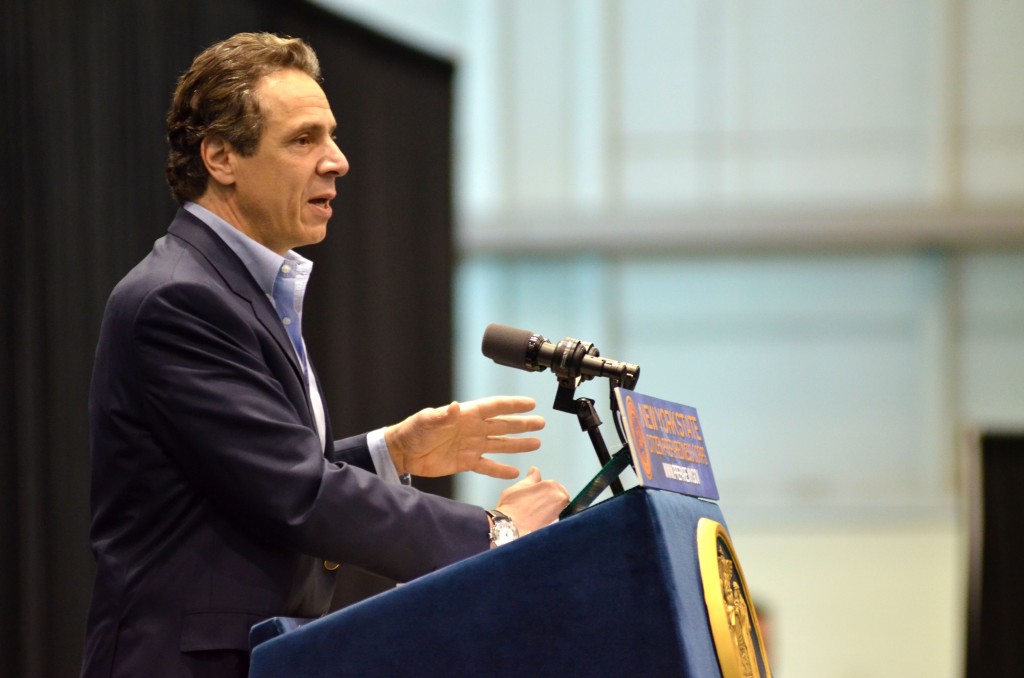
Binghamton University is now a part of Gov. Andrew Cuomo’s START-UP NY, an initiative to create tax-free business space for new firms on college campuses in upstate New York.
START-UP NY (SUNY Tax-free Areas to Revitalize and Transform Upstate New York) aims to encourage job development and create opportunities for the universities and the startups to use each other as well as the local community.
“It will give students the opportunity to have paid internships with the businesses located on campus. They’ll be able to experience entrepreneurs in the process of starting up a company, and from that, they will learn how to be an an entrepreneur,” said Harvey Stenger, president of Binghamton University. “They will bring to the project a unique contribution that may allow them to even become a part-owner.”
Businesses in START-UP NY do not pay NYS income tax, local business taxes, property or franchise taxes for 10 years. The legislation passed the New York State Assembly in June 2013.
“One of the original intentions was to promote entrepreneurship, and get more companies started,” said Per Stromhaug, the main Binghamton coordinator for the program and the assistant vice president for innovation and economic development. “What we see, really, is that it has a core interest for students, as well as faculty and staff, to say, ‘Hey. There’s a tax-free program here, I’ve been thinking about starting a business, maybe in technology or just something I developed in the dorm, if I can utilize that program, maybe I should give it a go.’”
In order to qualify, businesses must prove that they do not interfere with existing businesses in the area or relocate jobs from within the state.
Pairing them with SUNY and private universities also connects the businesses to students from a range of majors and research facilities, while funding developments in the University and offering students internships.
“Companies need scientists, they need engineers, they need marketers, they need writers, people who can be creative,” Stenger said. “Many times they come with staff with a science or engineering background, and what they don’t have is the communications, or marketing, or financial aspects.”
BU’s startup suite, located in the Innovative Technologies Complex, has up to 7,000 square feet, or 22 offices, as well the planned 54,000-square-foot Southern Tier High Technology Incubator Downtown. Though the types of firms in START-UP NY vary widely, Binghamton’s coordinators said they hope to focus on established fields in the University.
“We’ve identified three areas that we’re good at that we would entertain companies to be on campus,” Stenger said. “One is in the area of health care; this would be like telemedicine, health care devices, new materials for prosthetics. The second is in smart energy technologies, such as thermoelectrics, ultracapacitors and energy conservation. The third area, which we’re very good at, is electronic packaging, and integrated circuits.”
However, businesses aren’t limited to those fields, noted Stromhaug.
One of the businesses applying for space is ChromaNanoTech, a chemistry materials company that began in BU’s chemistry department and is staffed by two BU professors and a graduate student. Wayne Jones, founder and chair of the chemistry department, said having a space readily available benefited the new business.
“This allows the new venture to develop without being dragged down with construction and building costs in the first year,” Jones wrote in an email. “We are very excited about this new partnership and business opportunity. Hopefully, this will be a path that other faculty and small businesses will be able to follow to help the area.”


